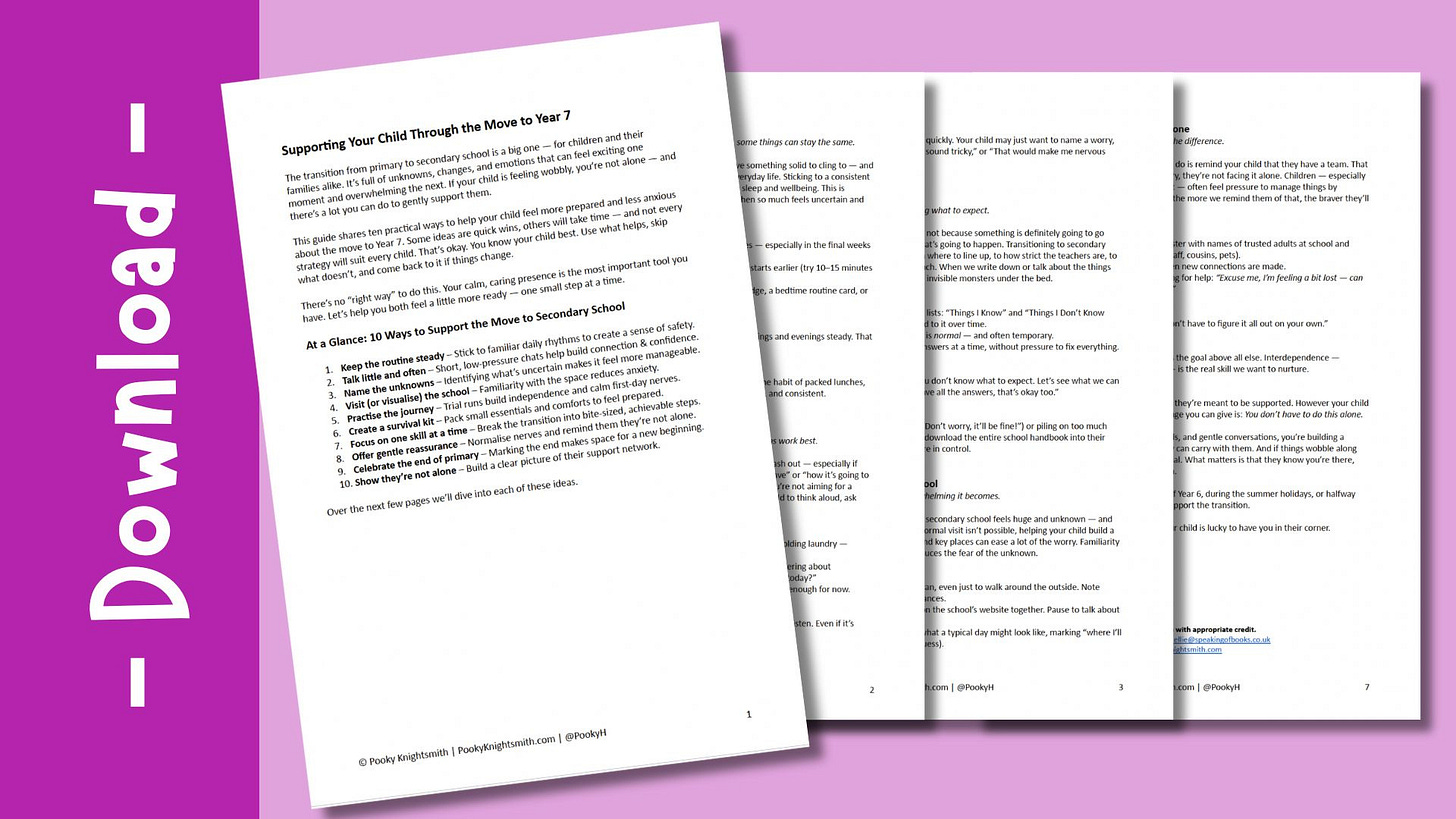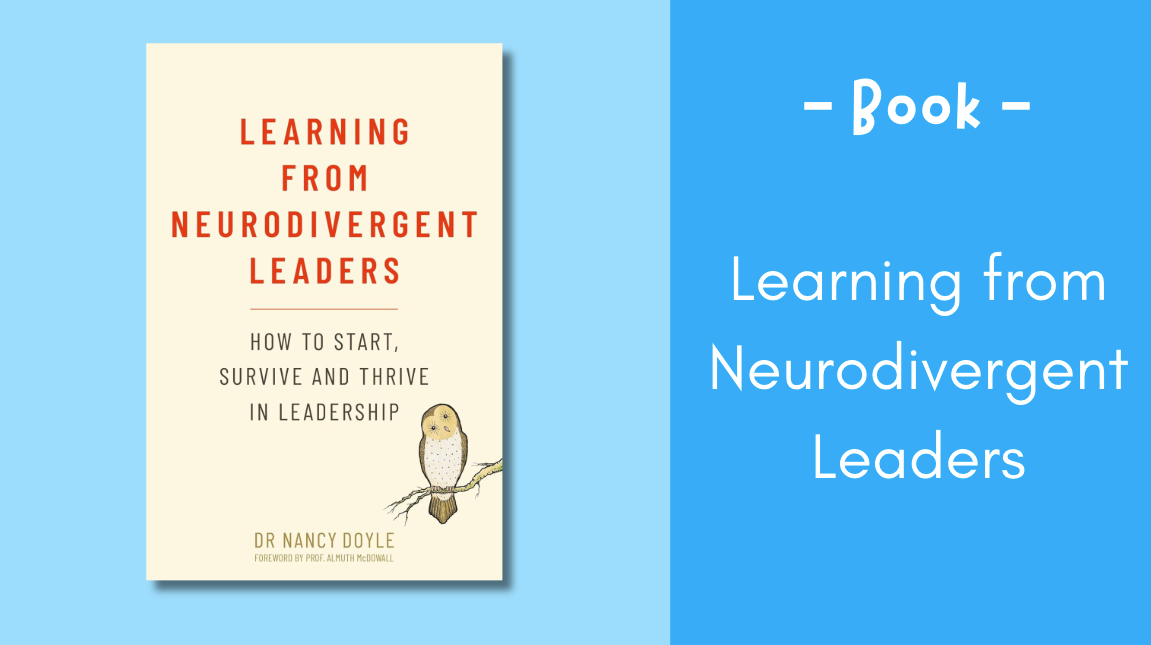Pooky’s Weekly Round-Up: Issue 113
Supporting Year 7 nerves, decoding mutism, and leading differently
This week’s round-up is all about communication—how we listen, how we speak, and how we support those who sometimes can’t (or won’t) say what we expect. From mutism to demand avoidance, from misunderstood learners to mighty Year 7 transitions, I’ve been thinking a lot about how we can tune in, show up, and make space for difference.
There’s also a book I’m scribbling all over, a lesson I’ve made free (packed with practical ideas for avoiding power struggles with PDA learners), and a gentle reminder that when the world feels wobbly, joy can still be found - especially atop a trig point, tandem by your side.
As ever, most of what you’ll find below is free to access and share. I hope it brings a little insight, reassurance, or inspiration to your day.
Let’s dive in…
PRESENT: Supporting Dyslexic & Dyspraxic Learners
These are the slides from a recent session exploring how we can better understand and support students with dyslexia and/or dyspraxia. We looked at what these profiles really mean (beyond the myths), why they’re often misunderstood, and how small classroom tweaks can reduce stress and increase success.
It’s a practical, myth-busting guide for busy staff—and I hope the ideas are helpful even without me there to talk them through.
(To book me or to find out more about my talks and webinars, email the lovely Ellie - Ellie@speakingofbooks.co.uk )
DOWNLOAD: Supporting the Move to Year 7
Ten calm, parent-friendly ideas to make the leap from primary to secondary feel far less daunting — from keeping familiar routines steady, to packing a tiny “first-week survival kit,” to naming the unknowns so they shrink back to size. Dip in, cherry-pick, share with families, or brand it for your setting (Word file included). No pressure, just practical ideas and reassurance.
LEARN: PDA - Communicating without Escalating
When working with demand avoidant learners, even simple instructions can feel like pressure and well-meaning conversations can quickly spiral.
This free lesson explores how to communicate in ways that reduce anxiety rather than add to it. We look at tone, timing, language, and non-verbal cues, plus simple tweaks you can make to avoid power struggles and keep connection at the heart of your approach.
Includes a video lesson, detailed notes, and a downloadable resource. (Part of my full, paid for, course on supporting demand avoidant learners - but this lesson is free - please provide constructive criticism).
READ: Learning from Neurodivergent Leaders
This one’s fast becoming a dog-eared, scribbled-in companion. Learning from Neurodivergent Leaders by Dr Nancy Doyle is exactly what it says on the tin - a practical, empowering guide for current and aspiring leaders who think differently.
It doesn’t sugar-coat the barriers we face, but it does offer real-world wisdom, tangible strategies, and a sense of solidarity. It blends professional and lived experience beautifully, I wish I’d read it years ago.
UNDERSTAND: Mutism is Not Defiance
Too often, silence is mistaken for rudeness, disobedience, or defiance. In reality, mutism (especially situational mutism) is usually anxiety-driven. It’s the nervous system saying, “I don’t feel safe.”
This explainer offers clear, compassionate guidance for recognising and supporting mutism in neurodivergent kids and adults. I hope it’s helpful - what other topics would you like covered this way? (let me know - pooky@inourhands.com )
SMILE: Trig Points, Tandems, and Joy on Two Wheels
t’s a running joke (and truth) that I can’t pass a trig point without climbing on top of it. This week’s smile features me doing just that - with Alan, our beloved mountain bike tandem, loyally by my side.
If you’ve followed me on Instagram for a while, you’ll know that life on two wheels brings me an enormous amount of joy. It’s part freedom, part adventure, part sanity-saving strategy.
Long live tandems. Long live trig points. Long live joy in small things.
—
Please do use or share my resources - if they help even one child, one family, or one teacher feel a little more understood or supported, then it’s all been worth it.
If you’d like to support my work, you can:
Share it with someone who might find it helpful
Pledge £1 a month on Patreon
Invite me to speak at your next event, online or in person
Enroll in one of my online courses.
Thanks, as always, for reading.
Until next time,
Pooky
Pooky Knightsmith PhD
Keynote Speaker
Speaking and webinar enquiries: Ellie@speakingofbooks.co.uk






